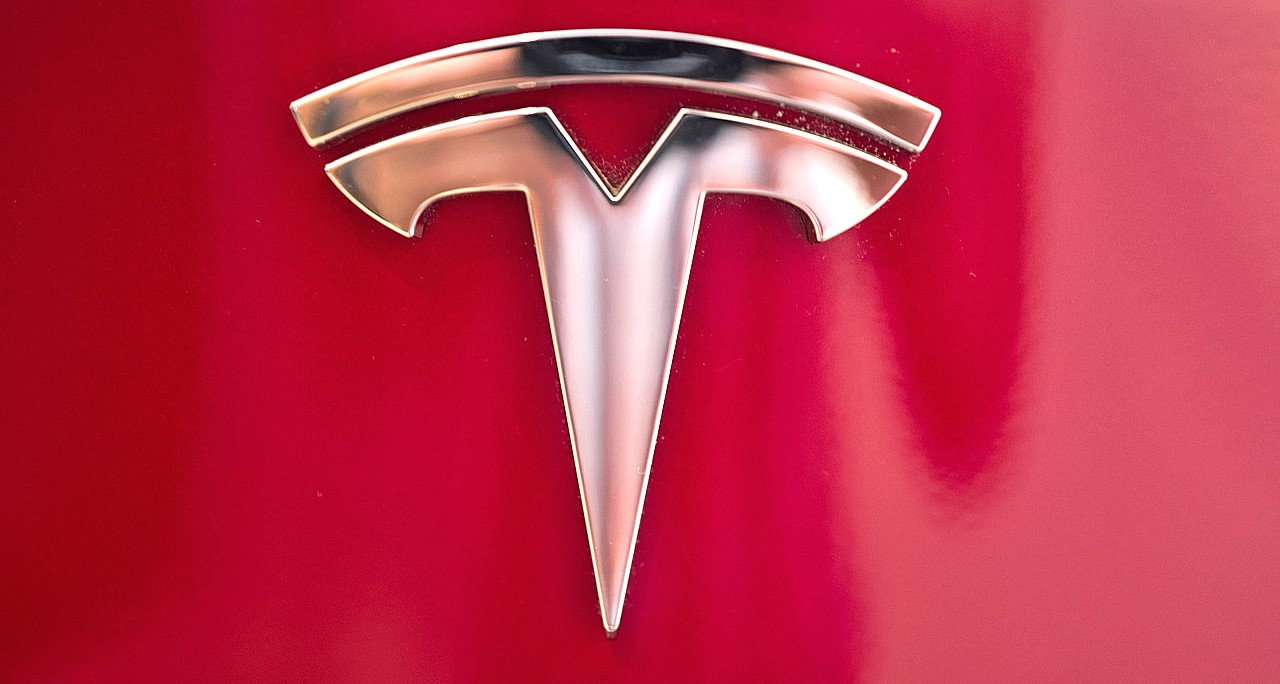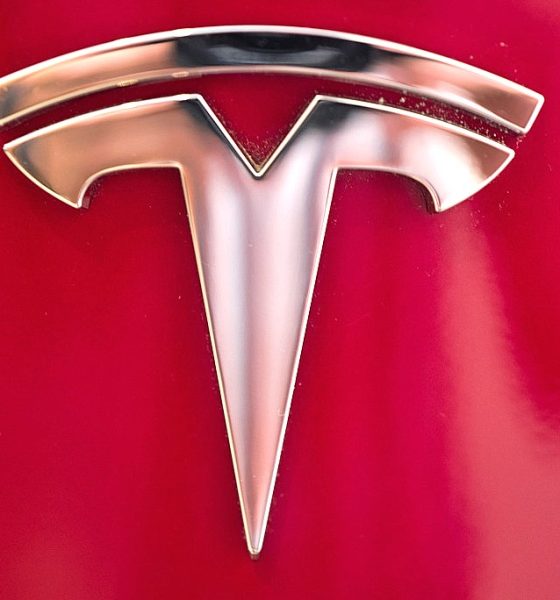Welcome to a FREE preview of our weekly exclusive! Each week our team goes ‘Beyond the News’ and handcrafts a special edition that includes our thoughts on the biggest stories, why it matters, and how it could impact the future.
You can receive this newsletter along with all of our other members-exclusive newsletters, become a premium member for just $3/month. Your support goes a long way for us behind the scenes! Thank you.
—
German publication Das Spiegel came out with a very good analysis on the car industry in the country and how new technology is changing its landscape significantly. Yes, it went over how far behind the former auto industry leader is now in terms of electric vehicles, but what I found even more interesting were the details hashed out about self-driving technology.
German auto makers are woefully behind in the tech, especially compared to companies like Waymo; however, most of those companies are looking to license their products rather than compete with car companies directly (unlike Tesla’s Master of the Universe approach). We’ve heard about the promises that autonomous taxi networks will live up to, so now I’ve started to wonder.
How much is manufacturer branding going to matter in the long term? Will the auto industry head towards a future similar to the airline industry? As Das Spiegel puts it, “At the end of the day, people don’t fly with a brand like Airbus or Boeing, they do so with an airline like Lufthansa or Emirates.”
Additionally, is it going to matter how well everyone (i.e., legacy auto) keeps up with EV makers when transportation overall is going to change so significantly that the old sales models will no longer apply?
Citing Waymo CEO John Krafcik’s perspective on Autopilot-type programs as a prompt, the article explains, “…companies could be making money not only from the sale of vehicles but also from every single mile the customer travels… That will be even truer once human drivers, the greatest cost factor in an autonomous vehicle, are completely eliminated. Taxis without drivers, maintenance trips without staff, deliveries without deliverers — in this new world, there will be no salaries or benefits to pay and the machines only go on strike when they have technical problems.” What happens when humans neither impact the manufacturing and service decisions and play a much smaller role in the purchasing decisions?
It seems like German automakers have been very slow to come around to the EV future due, in part, to a nostalgia for what the driving experience used to be and still is for those who still pay premium prices for such ‘driving machines.’ If the future of car ownership is going to be handed over to merely what’s most efficient for place-to-place travel, though, what does that mean for this industry’s experience factor when the engine is eliminated for electric motors and passengers aren’t even paying attention to the feeling of their wheels on the road, the turning radius, the pedal response, etc.?
Sure, some of these things will matter. Using the airline metaphor, customers have serious opinions about the kind of plane they travel in. Small seats and shaky cabins get terrible reviews, but when you need a ticket to your family reunion and price is the biggest factor in your decision, how much input does a customer really have when it comes to the vehicle being used to transport them? Car companies today are appealing to consumers as individuals, but when the consumers start becoming just one number in a larger “base” of people hailing a ride, or perhaps individual business owners looking for the most cost-efficient vehicle to generate money while they’re not using it, what does that mean for the whole “driving experience” model?
Will companies like BMW and Porsche switch over to a pooling type approach, appealing to taxi companies and the like instead of the mom or dad that has kids? Will they purchase all of their parts for various suppliers and just concentrate on body design and tech offerings? Are subscription services similar to cellular companies? On ride-hailing apps, customers choose the size or general style of the car they want to take, but that’s obviously a starkly different decision process than seeing ads, browsing at dealerships, taking test rides, etc.
Tesla will probably be an initial bellwether for how customers will respond to the transition, but I do wonder how much the airline metaphor will play out. WiFi, drink selections, destination discounts, travel package offers, etc., combined with other in-car luxuries like individual temperature controls and so forth will come along I’m sure. But, still.
What happens to, “Because we promised you a Mercedes Benz, that’s why…,”?

Lifestyle
Tesla Model S Plaid battles China’s 1500 hp monster Nurburgring monster, with surprising results
There is just something about Tesla’s tuning and refinement that makes raw specs seem not as game-changing.
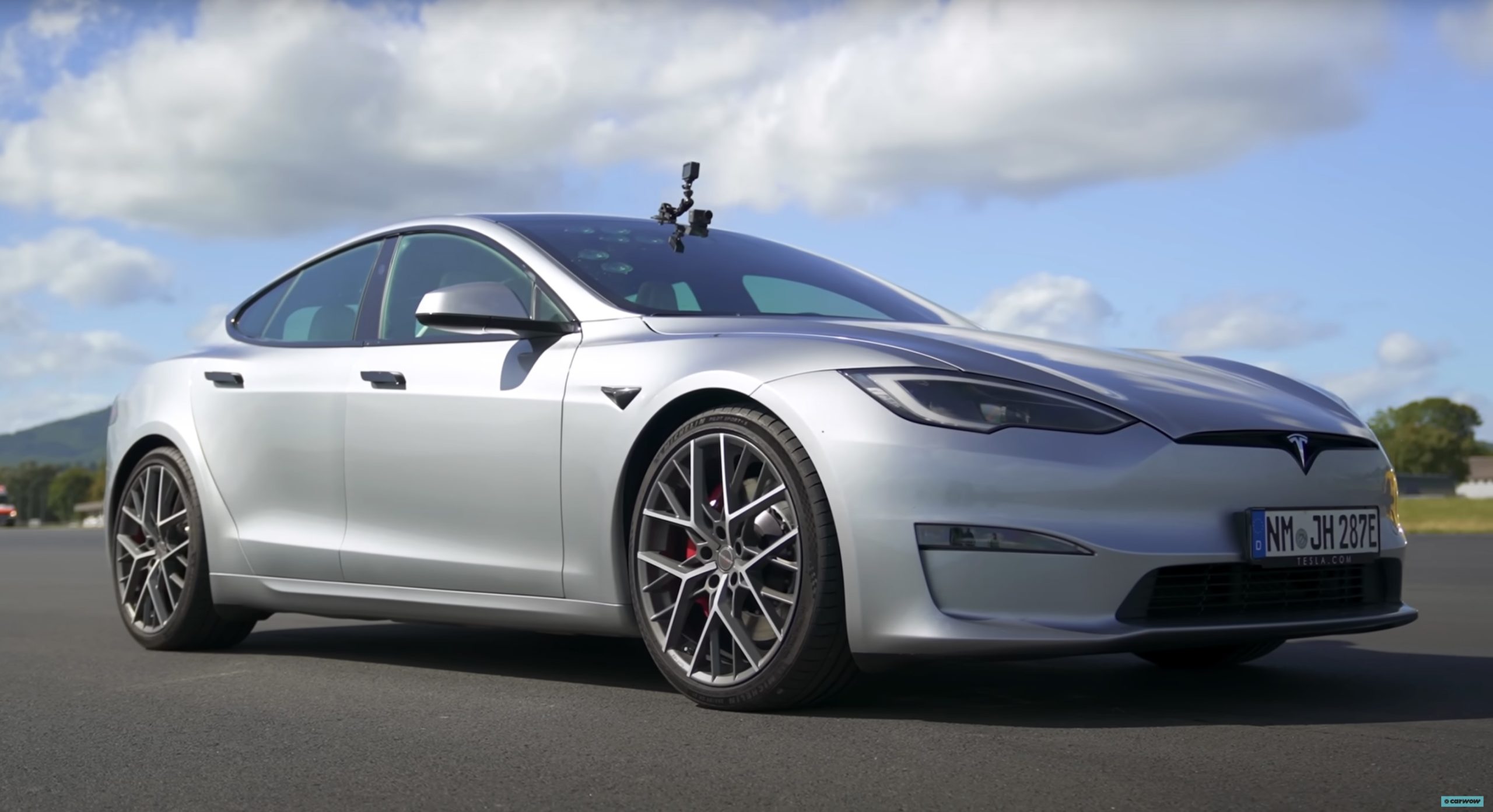
The Tesla Model S Plaid has been around for some time. Today, it is no longer the world’s quickest four-door electric sedan, nor is it the most powerful. As per a recent video from motoring YouTube channel Carwow, however, it seems like the Model S Plaid is still more than a match for some of its newer and more powerful rivals.
The monster from China
The Xiaomi SU7 Ultra is nothing short of a monster. Just like the Model S Plaid, it features three motors. It also has 1,548 hp and 1,770 Nm of torque. It’s All Wheel Drive and weighs a hefty 2,360 kg. The vehicle, which costs just about the equivalent of £55,000, has been recorded setting an insane 7:04.957 at the Nurburgring, surpassing the previous record held by the Porsche Taycan Turbo GT.
For all intents and purposes, the Model S Plaid looked outgunned in Carwow’s test. The Model S Plaid is no slouch with its three motors that produce 1,020 hp and 1,420 Nm of torque. It’s also a bit lighter at 2,190 kg despite its larger size. However, as the Carwow host pointed out, the Model S Plaid holds a 7:25.231 record in the Nurburgring. Compared to the Xiaomi SU7 Ultra’s record, the Model S Plaid’s lap time is notably slower.
Real-world tests
As could be seen in Carwow’s drag races, however, Tesla’s tech wizardry with the Model S Plaid is still hard to beat. The two vehicles competed in nine races, and the older Model S Plaid actually beat its newer, more powerful counterpart from China several times. At one point in the race, the Xiaomi SU7 Ultra hit its power limit due to its battery’s temperature, but the Model S Plaid was still going strong.
The Model S Plaid was first teased five years ago, in September 2020 during Tesla’s Battery Day. Since then, cars like the Lucid Air Sapphire and the Xiaomi SU7 Ultra have been released, surpassing its specs. But just like the Model Y ended up being the better all-rounder compared to the BYD Sealion 7 and the MG IM6, there is just something about Tesla’s tuning and refinement that makes raw specs seem not as game-changing.
Check out Carwow’s Model S Plaid vs Xiaomi SU7 drag race video below.
Lifestyle
500-mile test proves why Tesla Model Y still humiliates rivals in Europe
On paper, the BYD Sealion 7 and MG IM6 promised standout capabilities against the Model Y.
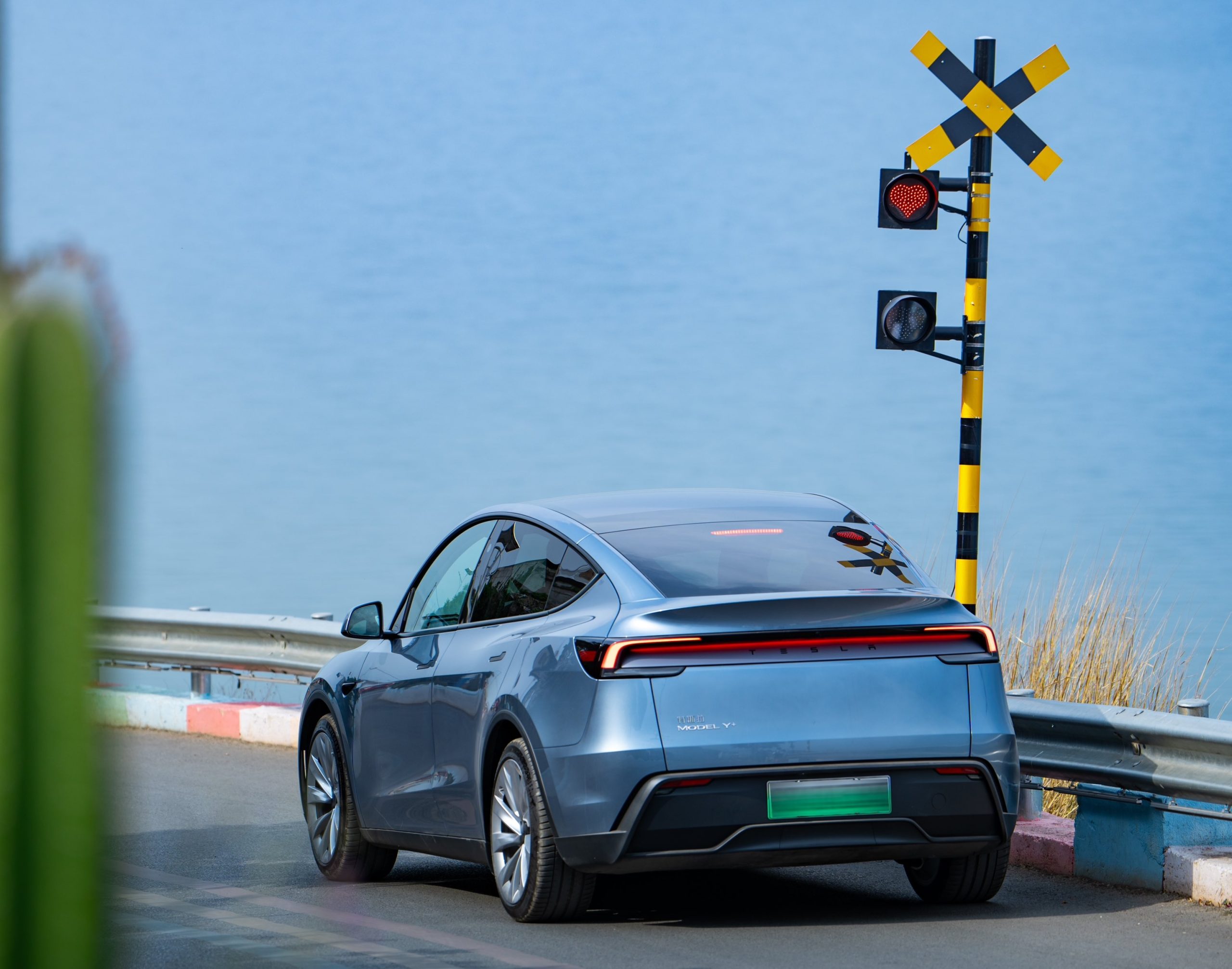
BYD is seeing a lot of momentum in Europe, so much so that mainstream media has taken every opportunity to argue that the Chinese automaker has beaten Tesla in the region. But while BYD sales this year in Europe are rising and Tesla’s registrations remain challenged, the raw capabilities of vehicles like the Model Y are difficult to deny.
This was highlighted in a 500-mile challenge by What Car? magazine, which showed that the new Tesla Model Y is more efficient, cheaper to run, and more reliable than rivals like the BYD Sealion 7, and even the nearly 400 KW-charging MG IM6.
Range and charging promises
On paper, the BYD Sealion 7 and MG IM6 promised standout capabilities against the Model Y. The Sealion 7 had more estimated range and the IM6 promised significantly faster charging. When faced with real-world conditions, however, it was still the Model Y that proved superior.
During the 500-mile test, the BYD nearly failed to reach a charging stop, arriving with less range than its display projected, as noted in a CarUp report. MG fared better, but its charging speeds never reached its promised nearly-400 kW charging speed. Tesla’s Model Y, by comparison, managed energy calculations precisely and arrived at each stop without issue.
Tesla leads in areas that matter
Charging times from 25% to 80% showed that the MG was the fastest at 17 minutes, while Tesla and BYD were close at 28 and 29 minutes, respectively. Overall efficiency and cost told a different story, however. The Model Y consumed 19.4 kWh per 100 km, compared to 22.2 for MG and 23.9 for BYD. Over the full trip, Tesla’s charging costs totaled just £82 thanks to its supercharger network, far below BYD’s £130 and MG’s £119.
What Car? Magazine’s testers concluded that despite BYD’s rapid sales growth and the MG IM6’s seriously impressive charging speeds, Tesla remains the more compelling real-world choice. The Model Y just offers stability, efficiency, and a proven charging infrastructure through its Supercharging network. And as per the magazine’s hosts, the Model Y is even the cheapest car to own among the three that were tested.
Watch What Car? Magazine’s 500-mile test in the video below.
Lifestyle
Tesla Cybertruck slapped with world’s least intimidating ticket, and it’s pure cringe
One cannot help but cringe and feel second-hand embarrassment at the idea of a person just driving around with a stack of these babies.
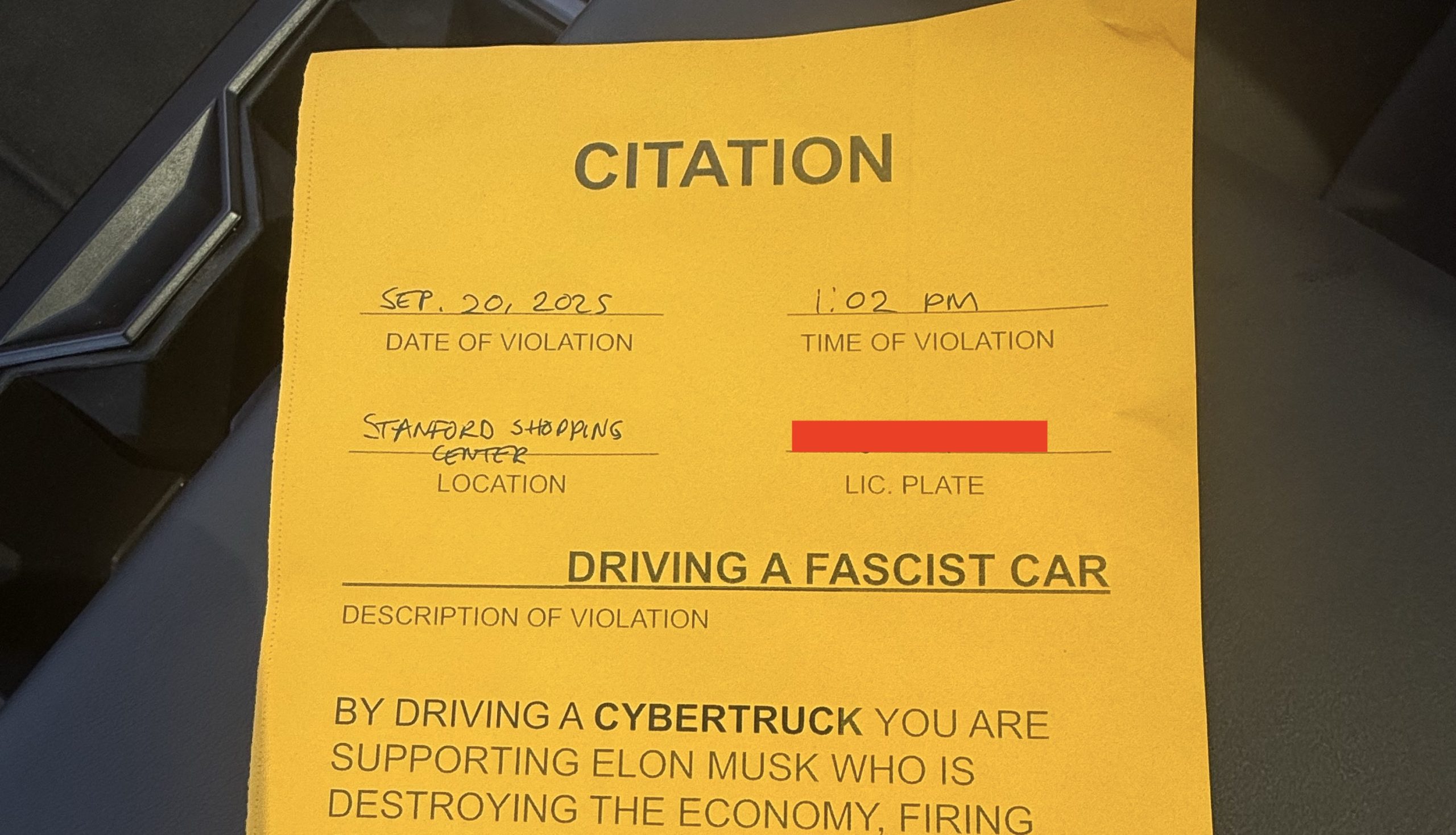
A Cybertruck parked at Stanford Shopping Center in California was recently hit with what might be the most try-hard piece of paper ever slipped under a wiper blade: a “fake citation” accusing the driver of supporting a “fascist car.”
The note, shared on X by Tesla staff program manager Ryan Torres, quickly made the rounds on X, where it quickly gained attention as an example of how not to protest.
The world’s least intimidating ticket
According to the citation, the supposed “violation” was “driving a fascist car.” The remedial action? Take the bus, call an Uber, or ride a bike. The note also dubbed Elon Musk a “chainsaw-wielding Nazi billionaire.” Now, protests against Tesla and Elon Musk have become commonplace this year, but one cannot help but cringe and feel second-hand embarrassment at the idea of a person just driving around with a stack of fake anti-Tesla/Musk citations.
Torres pointed out the irony himself in his post on X. Tesla currently employs over 140,000 Americans, and SpaceX has put the U.S. firmly back at the top of space technology. As Torres put it, maybe the person behind the world’s least intimidating ticket should “read a book on innovation before vandalizing” other people’s property.
Peak performative clownery
Not to mention that the fake ticket’s logic collapses under its own weight. EVs like the Cybertruck are literally designed to reduce emissions, not “destroy the economy.” If anything, Tesla has bolstered the United States’ economy by fueling jobs in engineering, manufacturing, and clean energy. It’s not the first time a Tesla has been the target of vandalism or politically charged notes, but this one stands out for sheer cringe value.
Torres summed it up neatly: “Peak clownery.” On that point, at least, the citation earns full marks. In a way, though, perhaps cringe fake tickets are not as bad as the literal firebombs that were being thrown at Tesla stores and cars earlier this year because some critics were gleefully misinformed about Elon Musk.
